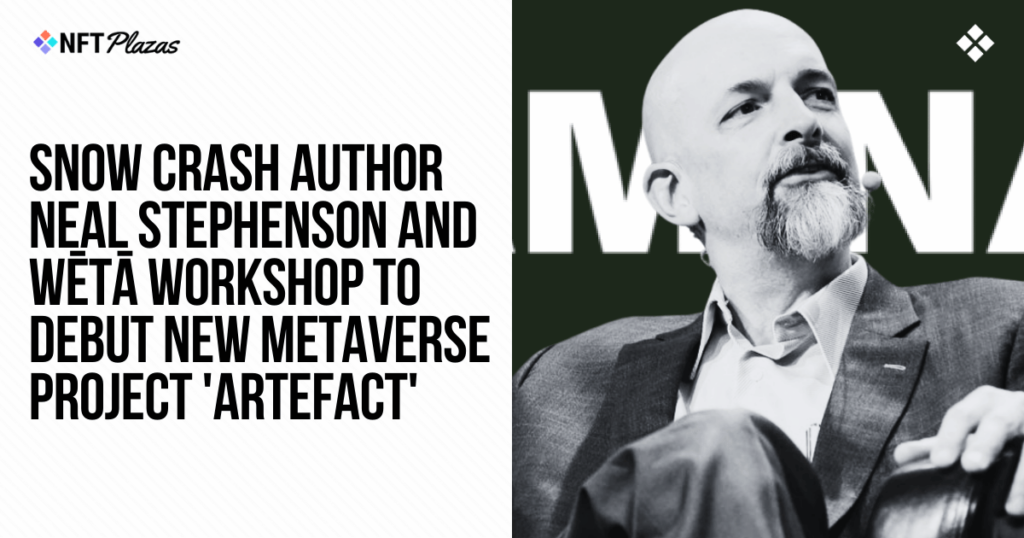Neal Stephenson, who introduced the concept of the Metaverse in his 1992 novel Snow Crash, has announced a new project called Artefact.
The initiative is a collaboration between Stephenson’s blockchain platform Lamina1 and Wētā Workshop, a special effects company known for films such as “The Lord of the Rings” and “Avatar.”
Artefact will be a key development in the ever-expanding Metaverse, focused on the creation and management of intellectual property rights in a blockchain environment.

 Source: Lamina1
Source: Lamina1What is an artifact?
Artefact is an open Metaverse project aimed at developing intellectual property (IP) in a decentralized, blockchain-driven environment.
The project draws on themes and concepts from Stephenson’s literary work and will center around a series of digital objects, or “artifacts,” that users can explore and interact with. These artifacts will serve as the basis for the story, allowing participants to discover and piece together elements of the story. This interactive approach aims to create a dynamic storytelling experience that allows the community to play an active role in expanding and shaping the universe.
“This is not just a new virtual world, it’s a new way of building worlds. It’s a promising new way of looking at what we can offer creators and their communities.
Lamina1, co-founded by Stephenson in 2022, has attracted 65,000 active users since its mainline launch in May 2024, positioning Artefact as its flagship project.
What can we expect from this project?
Artefact is expected to launch later this year and will invite creators and users to participate in the ongoing development of its virtual environment.
The platform will provide features such as digital item ownership, exploration mechanisms, collaborative creation, and artificial intelligence (AI)-driven tools. These elements aim to blur the lines between creators and consumers, allowing users to play a more active role in shaping virtual worlds.
“The initiative will leverage Lamina1’s unique platform capabilities designed to support the development, monetization and ownership of creative content in a decentralized ecosystem. This in turn enables unprecedented levels of fan interaction and creative output.

